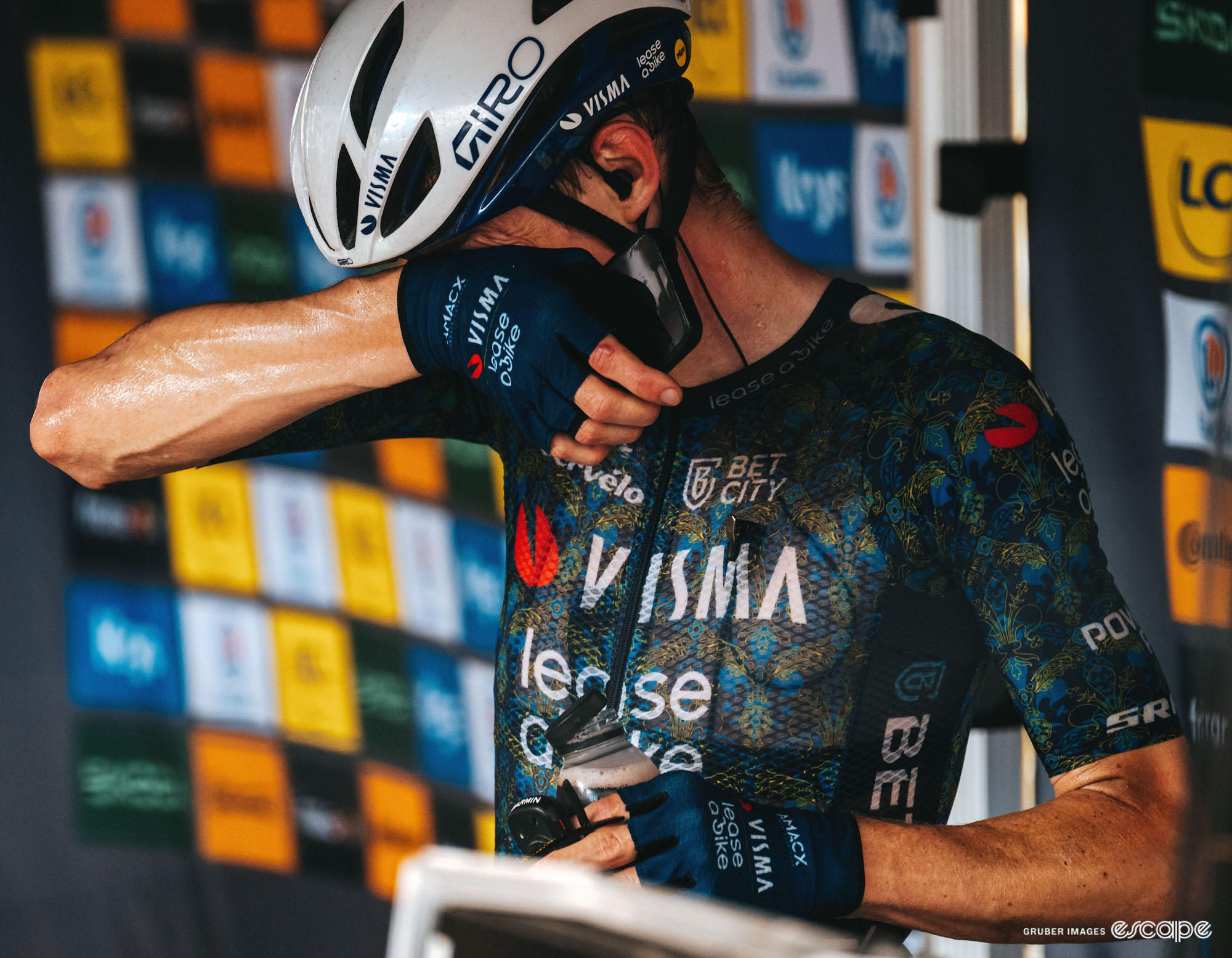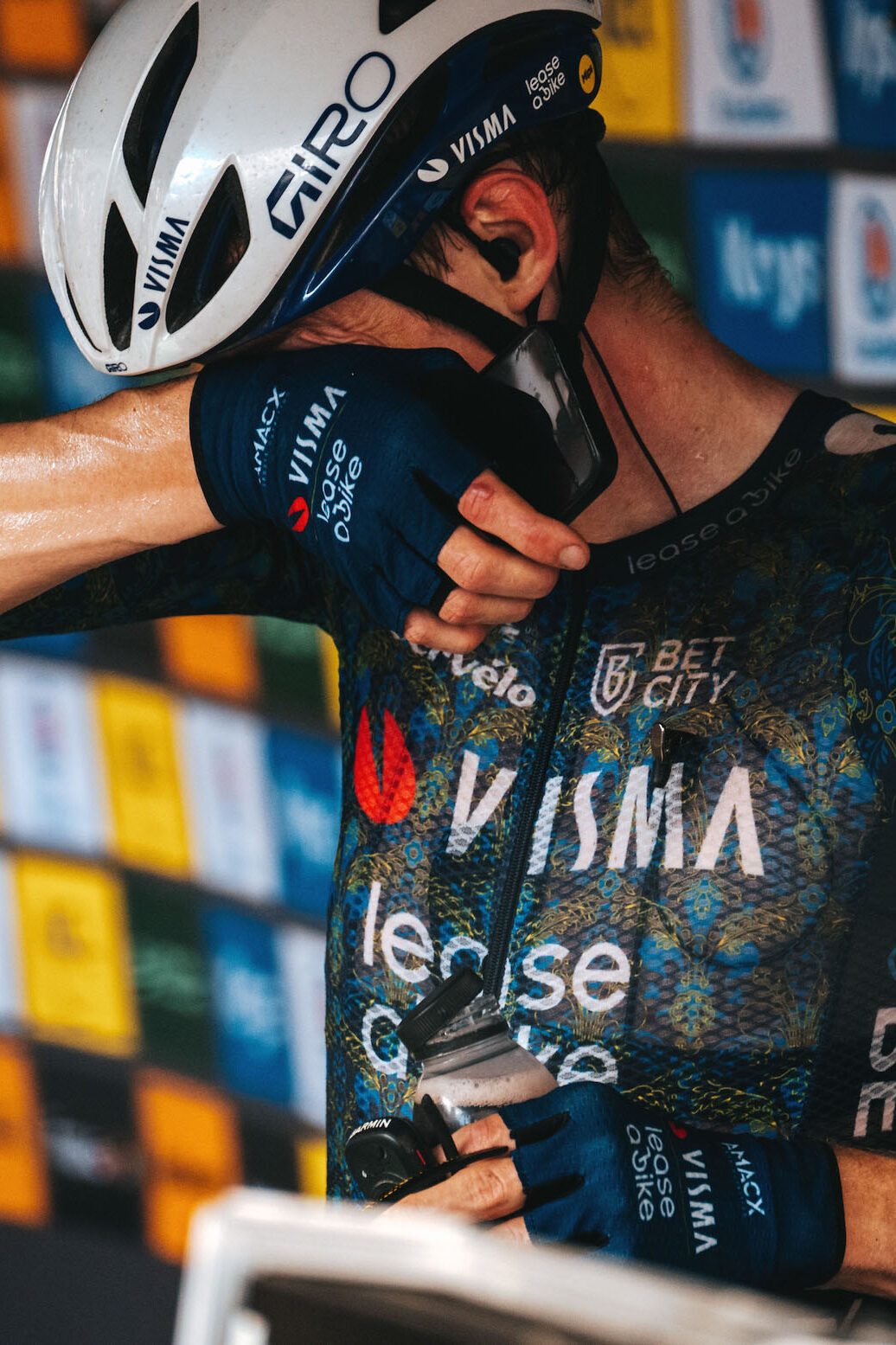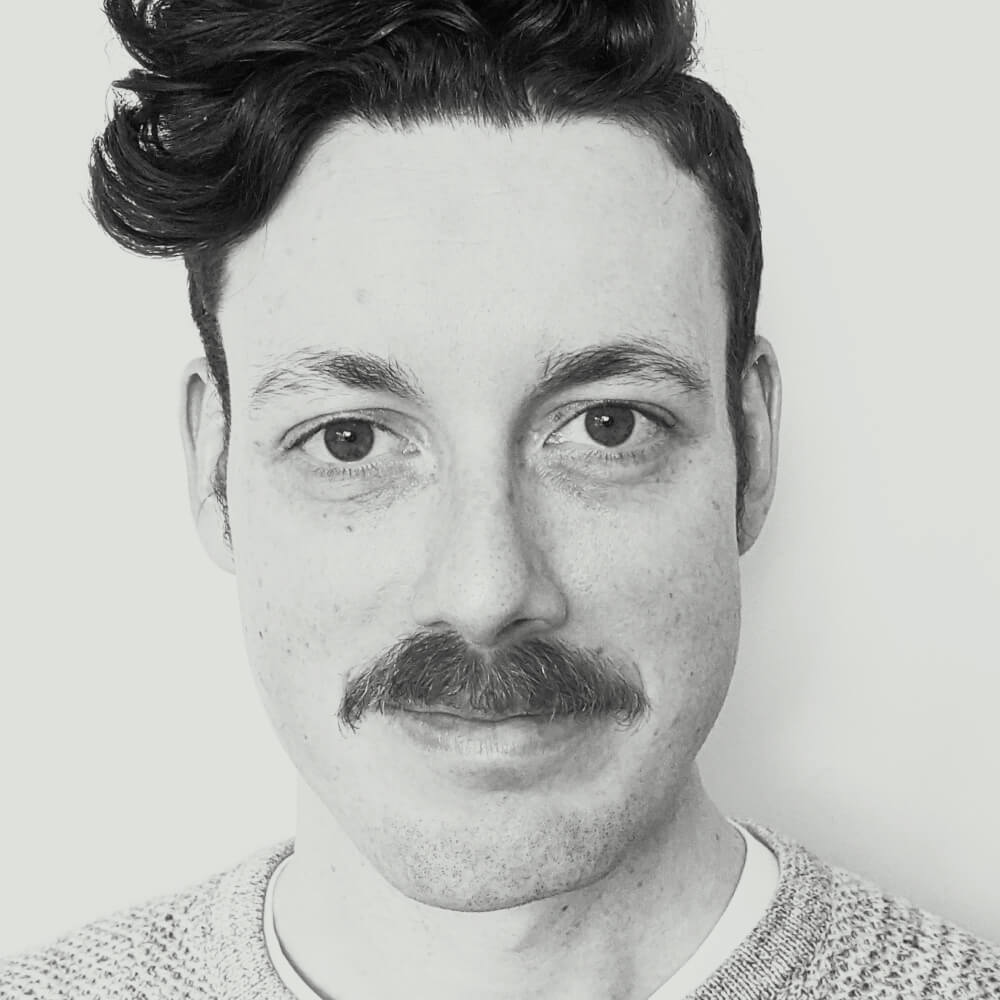A murmur goes up in the press room, accompanied by the thrum of TV stands being wheeled out of the way of the long rows of desks we’ve been sitting behind for all of July. Three weeks after the Tour de France began, three months after he was lying on the side of a road in the Basque Country gasping for oxygen, and about three hours since he finished this race – convincingly beaten by Tadej Pogačar, but simultaneously a minor miracle to be here at all – Jonas Vingegaard walks into the Tour-ending press conference.
He’s as small and lean as you’d expect, which is to say that he is very much both of those things. He strides in with a certain sense of either purpose or ‘Let’s just get this out of the way,” flanked by his team press officer and followed by a white jersey-clad Remco Evenepoel. They’ve both got sunglasses balanced on the brims of their caps – those ones with Oakley written across the lens, never meant to be worn other than as advertising – and they take their seats on a raised podium, yellow Tour de France backdrop behind it.
Vingegaard looks out at the media – the cameras, the photographers, the people tapping away on their laptops – with a certain quiet contemplation. His press officer plugs in his phone at our powerboard and sits on our desk. “You ready to go home?” we ask him, making small talk in the moments before the interrogation of Jonas begins. “Oh yes,” he says, exhaling audibly. “And he …” – here he nods towards Vingegaard – “… he’s ready too. He’s tired.”
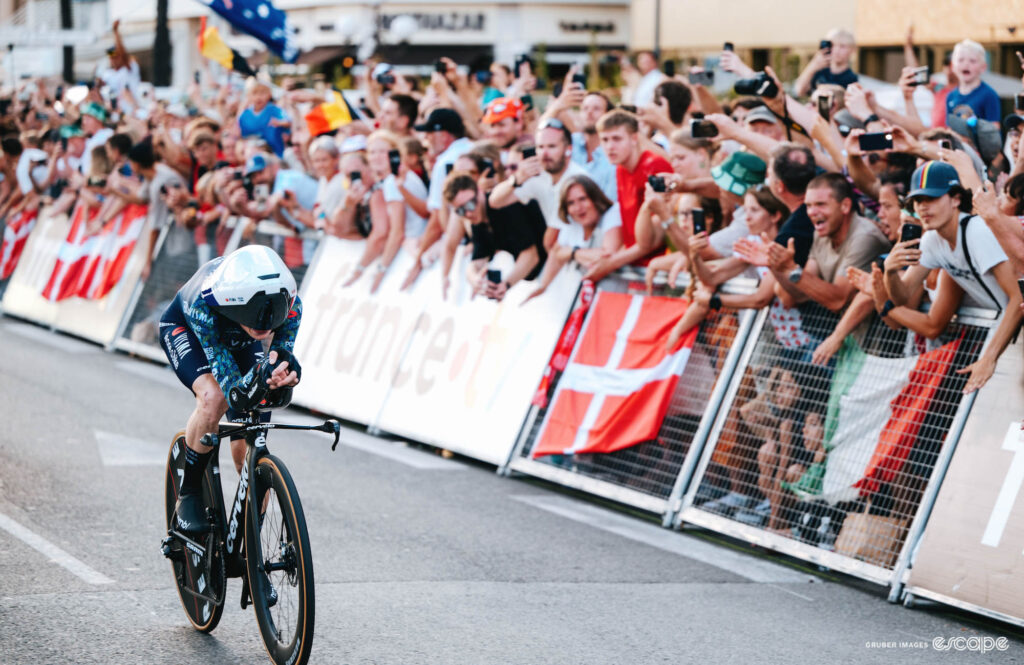
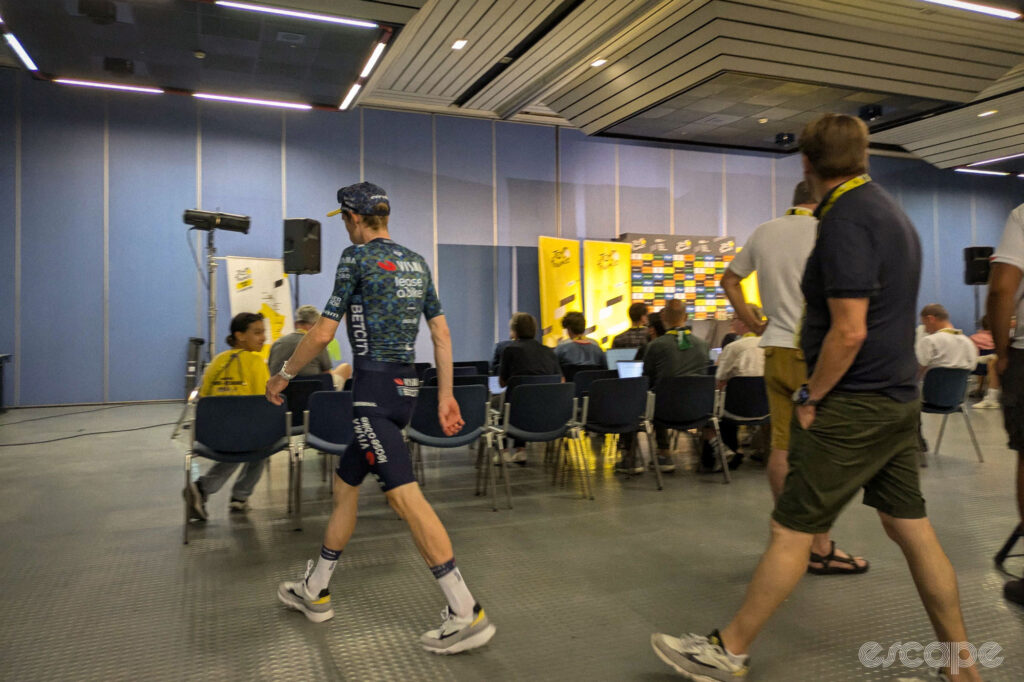
I can believe it. There are levels of fatigue here: the physical ordeal of racing around France for weeks, of course – of ascending its highest roads, riding at a level he says has produced his best-ever power, even despite everything, even though it wasn’t enough to loosen Pogačar’s grip on the race; the emotional toll of competing under the glare of the media spotlight, of answering all these questions, of the team meetings and the constant travel from one shitty hotel room to another, never having a moment that isn’t consumed with the Tour de France.
But I think that in Vingegaard’s thoughtful, plainly-spoken responses, you can sense a much deeper weariness than what this Tour de France alone has put him through. A kind of existential awakening. He’s said that he thought he was going to die in that awful crash, and in surviving has, perhaps, stumbled upon a new way to frame his expectations and understanding of himself.
“It’s very nice to be back here at a high level,” he begins, speaking carefully. Is he disappointed? No, not really. “To get second in the Tour de France is still a very, very big result,” he says, pondering aloud whether one day, when the dust has settled, “maybe I’ll be even more proud of this second place than the two victories I’ve had.”
The reason why is unspoken, but someone asks him to speak it anyway, picking at what he would do to prepare differently for next year. “Yeah, my whole preparation was far from ideal,” he says with a wry smile, the lightest hint of a gallows-humour chuckle. There’s a pretty clear list of things he’d change, he says, most particularly including “not breaking almost every bone on the upper right side of my body and puncturing both lungs.” Months of careful preparation was all, in that instant, derailed. The Tour’s defending champ had 12 days in hospital, eight of them in intensive care, not being able to get out of bed: this was a Tour de France defence hastily built on the foundations of one and a half months of “proper training.”
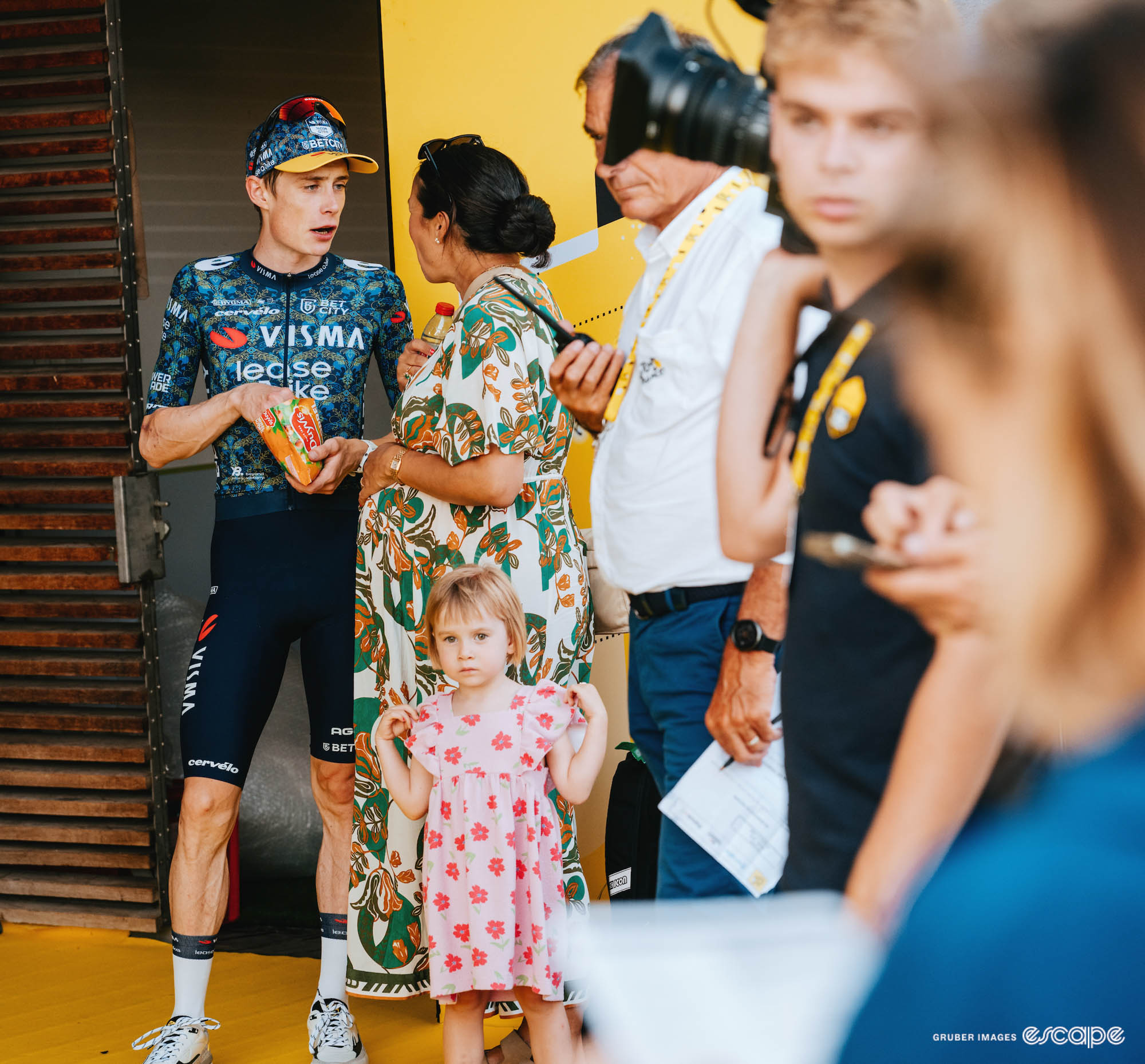
The contradiction at the core of Vingegaard the person is his strength but gentleness; a withdrawn, family-loving man who is fiercely driven by results. That gentleness – I want to say vulnerability, but that makes it sound like a weakness, which I don’t think it is – means that this day, in this press room, he’s able to articulate the toll that it’s all taken mentally.
“I haven’t had a proper day of rest in my head since November last year,” he says – always thinking about the Tour, always thinking about nutrition, training, being better. That mental burden, and the physical trauma that piled on top of it, seems to have been a heavy one, and this year we saw it pouring out of him in tears – of pride and relief in Le Lioran, of resignation and disappointment at Isola 2000. From his stage win to his capitulation, he “had the belief” that he might be able to win the Tour de France again this year. On the unforgiving slopes of the Col de la Bonette, a week later, it clicked that he’d have to change his mindset. I wonder if there was any relief in that, or whether an absence of it might explain why Jonas Vingegaard is the remarkable athlete he is.
The press conference see-saws back and forth between questions for Vingegaard and questions for Evenepoel. The younger man is full of compliments for his peers, “the best two in the world,” and proud that he was able to round out the podium behind them. For Evenepoel, the big breakthrough was being consistent. He stumbles on the word a couple of times; Vingegaard looks over to him, smiles warmly, quietly gives him an assist with the pronunciation. Again, not the robot he’s sometimes painted as.
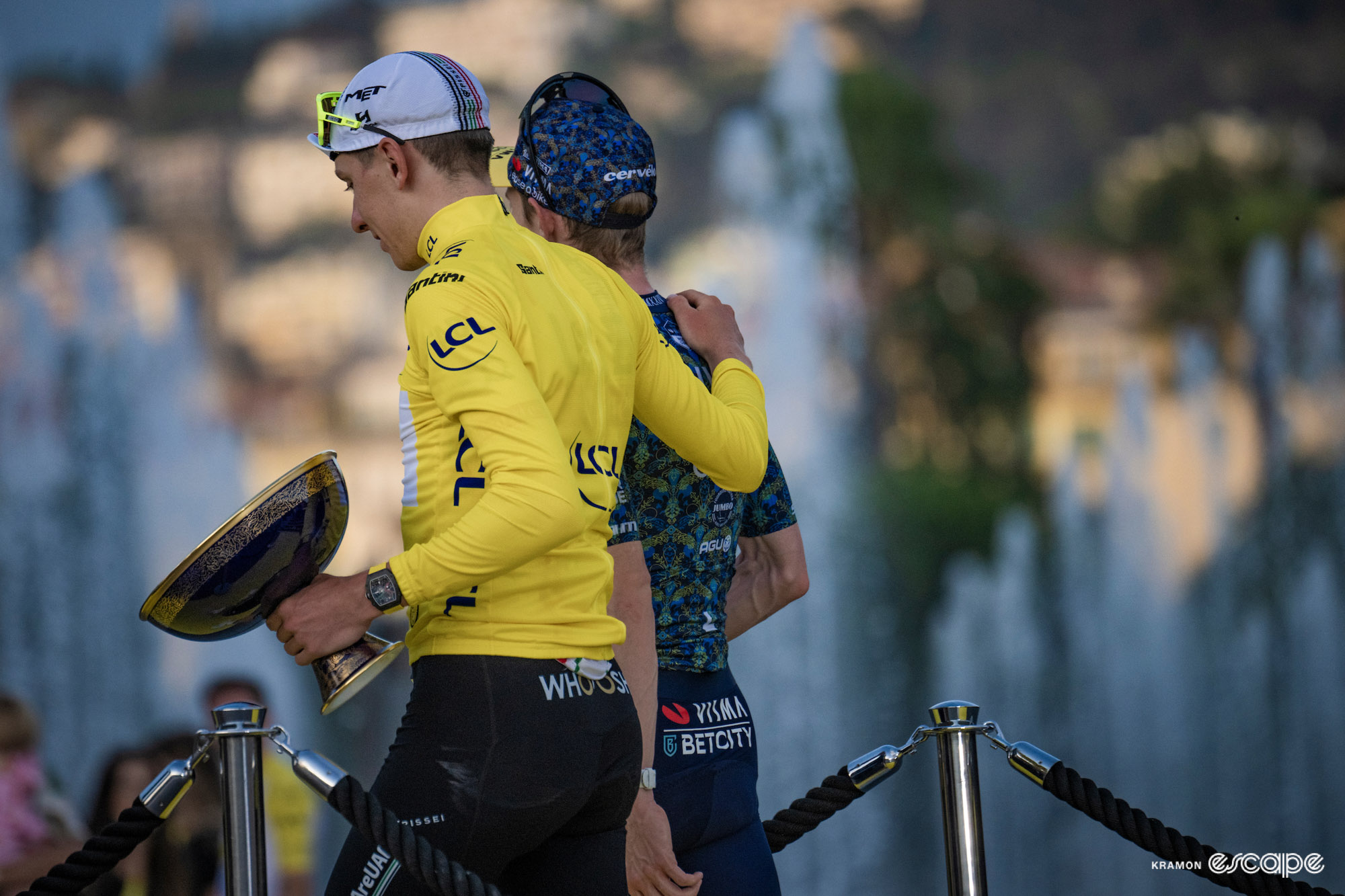
There will be more Tours de France for Jonas Vingegaard, with Visma-Lease a Bike facing the question of how to beat a levelled-up Tadej Pogačar again. For this year, though, Jonas Vingegaard has nothing left to prove: he did everything he could with a deck stacked against him, and it wasn’t enough.
The questions tick down. The procedural administration after the Tour de France comes to an end. Vingegaard gets up from the desk, briskly walks out of the press room and stands there, quietly debriefing with his press officer, just outside of the door. A murmur ripples through the room again, and Vingegaard watches an all-yellow Tadej Pogačar stride confidently in. When I look back a few seconds later, Vingegaard is gone.
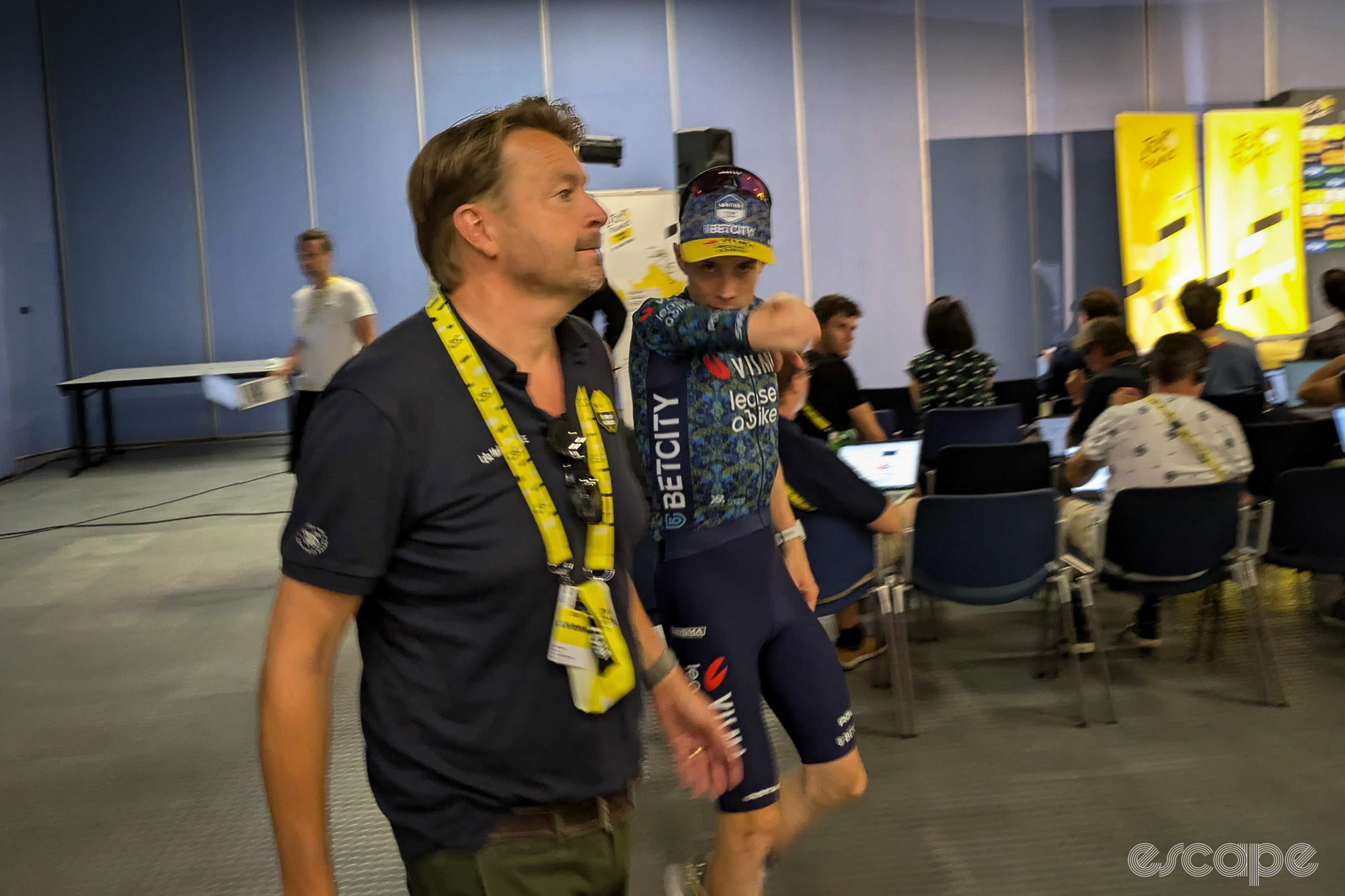
What did you think of this story?
